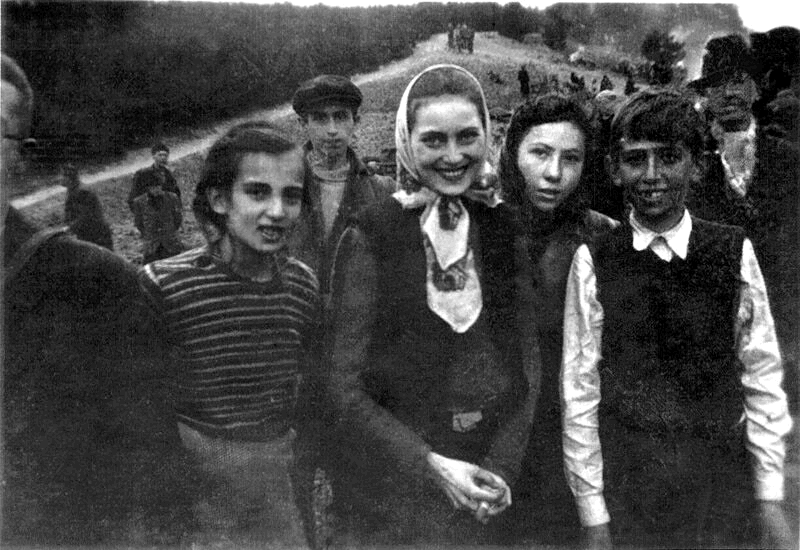There is a lot of vocal (phosphor-escent?) talk on the interwebs about how you cannot be both a scientist/thinker/rational or educated person if you are also a "person of faith." Some is honest discussion, and some off it's simplistic insults, but a lot more of it reminds me of examples I've seen of on-line bullying.
This seems to derive from a false dichotomy similar to that described by C.P. Snow in
"The Two Cultures," which described the perceived separation between science and the humanities
. Really, being a geek and being spiritual do not have to be mutually exclusive. There are many well-respected scientists, writers and fans who are people of faith, whether it be a variety of Christianity, being Jewish, Muslim, Hindu, Jain, Santeria or any other flavor.
There is no inherent conflict between recognizing the excitement and wonder of a "big bang" and believing that a supreme being put it in motion. There is no inherent conflict between a belief in a resurrected Christ and contemplating the beauty of crystals growing, being excited over the revelations held in the Earth's fossil record or the elegance of the dance of genetics.
During mid-January I attended, and helped run, a science-fiction convention in Boston (
ARISIA), with activities spread out over four days (Friday evening through Monday afternoon). For those who don't attend, it's a broad-spectrum convention, with panels on SF/F literature, writing, "fannish" and lifestyle choices, along with films/anime/video, gaming, costuming (
lots of costuming), a big dealer's room, a pretty good-sized (and pretty good) art show and a lot of schmoozing. But one thing I realized I was missing when I attended these conventions, especially over the last few years, was being able to attend Sunday services. It was something that simply had not been there. And I wondered if I was the the only person who felt that, for them, an important part of one's life was being left unattended. So I decided to do something about it.
On Saturday and Sunday morning, at this year's
ARISIA, I had the opportunity to reserve space for, and lead, a Morning Prayer service, part of the Daily Office.(*) This was the first year this convention has offered the prayer service to the attendees, simply because none asked it. Of course, for many of us who work as volunteers for these conventions, the only way we usually get to see any actual
program items is if we manage to get ourselves put on the program. So this was actually A Very Fannish Thing to do.
Because of a general failure in communications the prayer services did not make it into the program book, and I put out flyers In All The Usual Places to advertise. On Saturday morning, there were two worshipers, myself and one other (who had snagged a copy of the flyer when I had just printed them up, before I even got to put them out). On Sunday, there were six others, who had seen the flyers.
Frankly, I was surprised that there was anybody there, thinking that the recognition of spiritual anchors was something lost, or not acknowledged in our secular times. I've since been told that some other conventions have services scheduled as a regular item, and that there is a much larger body of participants than I had imagined. As someone who was raised Roman Catholic, however, to lead this worship, this active participation by a member of the lay congregation, which is such a central component of Episcopal worship, is a little frightening, with this personal, active, responsibility for worship that is ultimately our own.
I can only think that the turnout on Sunday shows that this is an unmet need in our community at conventions, and that it is something that should be offered going forward, and perhaps at other local conventions - there is no reason that the Anime-centered or hard-lit cons might not have the same need among their attendance.
And, yes, I am going to ask that it be included on the program track for next year's ARISIA as well.
- -- - -- - -- - --
(*) The Daily Office is what Anglicans/Episcopalians have evolved from the Roman Catholic liturgy that established daily prayers at set times during the day (often called the
Divine Office). Readers of many fantasy (and some British mystery) novels may recognize the names of these prayers, usually in context of a monastic community, but not what they stood for.
Modern Catholic usage celebrates seven offices daily::
-
Matins ("
of or belonging to the morning" - said just before dawn)
-
Lauds ("
Praises" - said at/just after dawn)
-
Terce ("
Third Hour" - mid-morning prayer, said at 9:00 AM)
-
Sext ("
Sixth hour" - Mid-day prayer, said at noon)
-
None ("
Ninth hour" - Mid-afternoon prayer, said at 3:00 PM)
-
Vespers ("Evening prayer" - Said at sunset)
-
Compline ("
Complete [the day]" - Final prayer of the Office of the day, usually said just before bedtime)
The Anglican usage is more abbreviated, with the major emphasis on the
Morning Prayer (which combines
Matins and
Lauds) and
Evening Prayer (corresponding to
Vespers). The other two offices of the Anglican Daily Office are
Prayer During The Day (combines
Terce, Sext and
None) and
Night Prayer (
Compline).
With the busy schedule our industrialized world imposes, most people don't have the time to celebrate the Prayer During The Day and people are usually so distracted or tired they miss Night Prayer. All of the Offices, however, can be said in solitary or in company, and many Episcopal churches offer daily Morning and Evening prayer.
(The form of the Morning Prayer I used for these services was from the Iona Abbey Worship Book, which was compiled by the Iona Community in 2000.)









